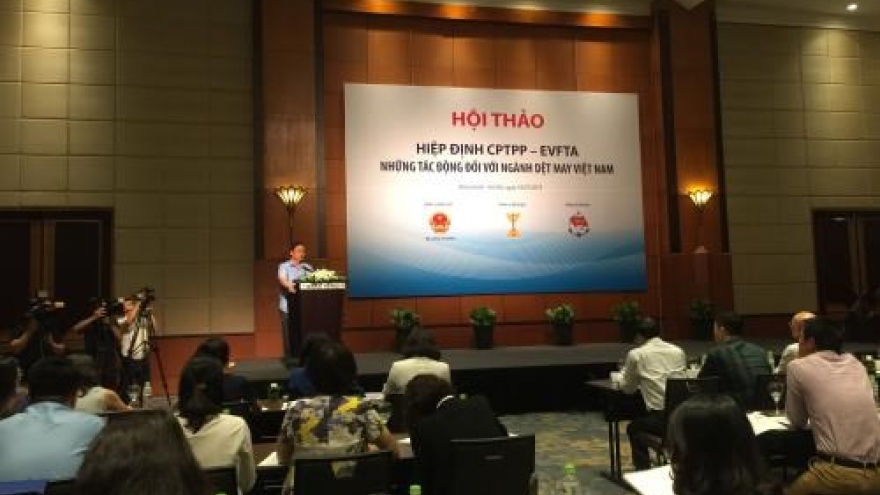Textile industry unhappy with government plan to raise retirement age
Textile companies have rejected the proposal to raise employees’ retirement ages, saying most women workers suffer from huge workloads.
 |
|
Most textile workers want to retire early due to heavy work pressure. Photo by Reuters
|
But textile firms firmly oppose this proposal. Bui Duc Thinh, chairman of Song Hong Garment JSC, said at a recent forum that an increase of five years would cause too much stress for female textile workers, who work up to 10 hours a day in a job that requires intense focus.
Many women workers in fact want to retire at 45, so the existing retirement age of 55 is already unreasonable, he said. "Some even bribe doctors to have medical grounds for early retirement."
A representative of the Vietnam Leather, Footwear and Handbag Association (LEFASO) said women textile workers tend to retire at 35-40 and use their retirement benefits to open their own small business like a garment or barber shop. "Most of them quit before 50."
Truong Van Cam, general secretary of the Vietnam Textile and Apparel Association, said the retirement age should be increased first for administrative jobs, while in manufacturing it could come in the next five or 10 years.
Dao Thi Thu Huyen of the Japanese Business Association in Vietnam (JBAV) said Vietnam’s life expectancy is 10 years less than Japan’s, but both countries have the same retirement age of 60.
"Vietnam’s population is young, so we should give the younger generations the opportunity to work. The retirement age should be raised only for senior positions."
The proposal to increase the retirement age stems from the fact that social insurance funds are limited, Pham Minh Huan, former Deputy Minister of Labor, Invalids and Social Affairs, said.
Vietnam’s retirement and social benefit funds are forecast to face shortfalls from 2023, and the government will be required to subsidize the pension system from 2034, according to the International Labor Organization.




